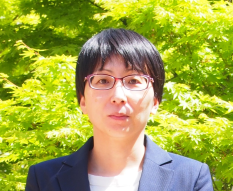Qualifications
PhD (Economics)
Research gate or Linked-in account links
https://researchmap.jp/miwakana
Background
- 2009 PhD, Graduate School of International Cooperation Studies, Kobe University
- 2009-2010 Postdoctoral Researcher, JGSS Research Center, Osaka University of Commerce
- 2010-2013 Lecturer, Faculty of Economics, Kushiro Public University of Economics
- 2013-2022 Associate Professor, Faculty of Economics, Kushiro Public University of Economics
- 2022-2023 Associate Professor, Faculty of Economics, Nagasaki University
- 2023- Professor, Faculty of Economics, Nagasaki University
Teaching
- 2010-2022 Economic Growth Theory, Studies on International Development and Economy, Data Analysis
- 2022- Development Economics, Studies on International Development
Research
I specialize in development economics, and my research focuses on (1) the impact of the development of the garment industry on household welfare and human capital (health, education, and education) in Cambodia; (2) the determinants of child health, nutrition, and education; (3) the determinants of micro-health insurance and its promotion; and (4) the relationship between informal risk sharing and social capital. Additionally, I am also conducting research on “multidimensional child poverty”.
The country/countries where you work currently
- Cambodia
Five MOST IMPORTANT/INTERESTING recent publications
- Kana Miwa (2024) “Maternal Labor Force Participation and Multidimensional Child Poverty in Least-Developed Countries in Southeast Asia,” Japanese Journal of Agricultural Economics, No.26, pp.48-53.
- 福井清一・三輪加奈・高篠仁奈 (2023)『開発経済を学ぶ 改訂版』創成社. (Seiichi Fukui, Kana Miwa, and Nina Takashino, 2023, Development Economics, 2nd ed. (Textbook), Souseisha)
- Kana Miwa (2022) “Working in the Garment Industry and Child Education and Work in Cambodia,” Journal of Rural Problems, 58(2), pp.82-89.https://doi.org/10.7310/arfe.58.82.
- 三輪加奈 (2021)「近隣での縫製工場の稼働が家計厚生にもたらす影響―カンボジア農村を事例として―」, 『農林業問題研究』第57巻第2号, pp.53-60. (Kana Miwa, 2021, “Effects of Garment Factories on Household Welfare: A Case Study in Rural Cambodia,” Journal of Rural Problems, 57(2), pp.53-60. in Japanese) https://doi.org/10.7310/arfe.57.53.
- Hiroki Wakamatsu, Seiichi Fukui, and Kana Miwa (2019), “Heterogenous Preference for Micro Health Insurance Attributes in Rural Cambodia: Latent Class Analysis,” Economics Bulletin, 39(4), pp.2963-2975.
Message
My interest lies in the relationship between poverty and socioeconomic factors and environmental changes in developing countries, as well as informal rural institutions (e.g., mutual help customs) that can address poverty. Econometric analyses using micro data at the household and individual levels are the primary research methods; however, it is worth emphasizing that fieldwork is significantly important for our research. I believe that by engaging in household surveys and other related activities, we can gain valuable insights into the actual circumstances on the grounds that may not be readily apparent through the analysis of numerical data alone. Such insights, in turn, can enable us to achieve greater depth and clarity in our research findings.

